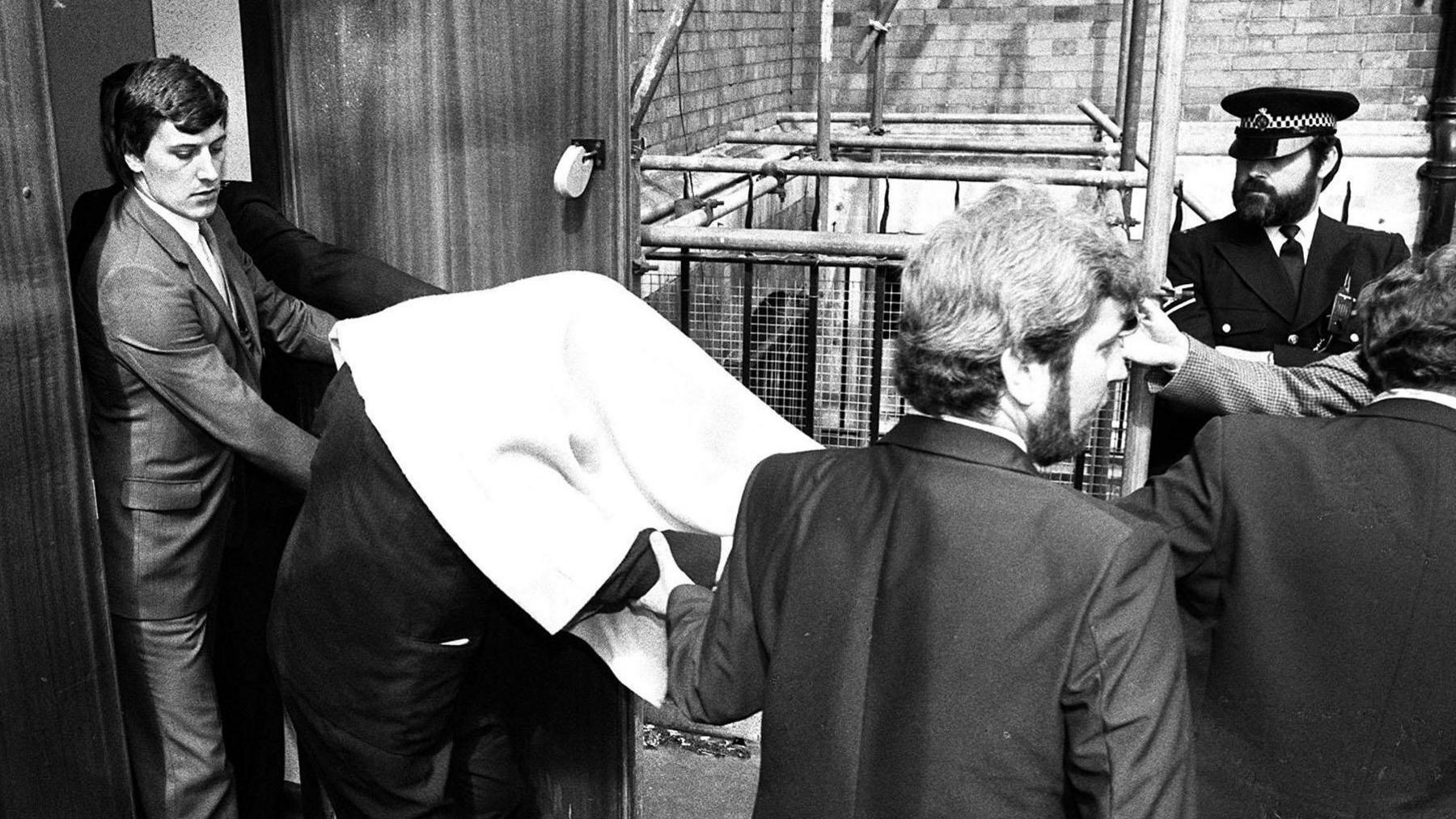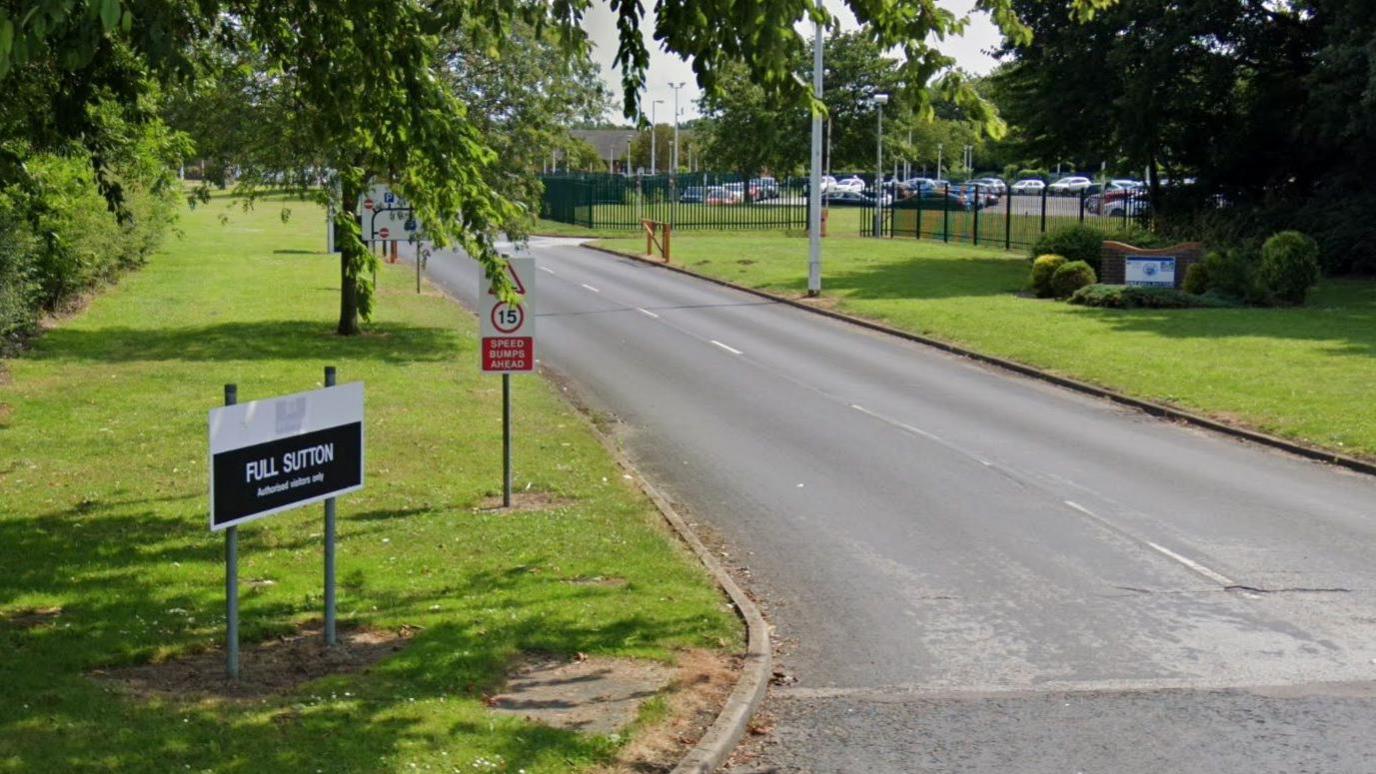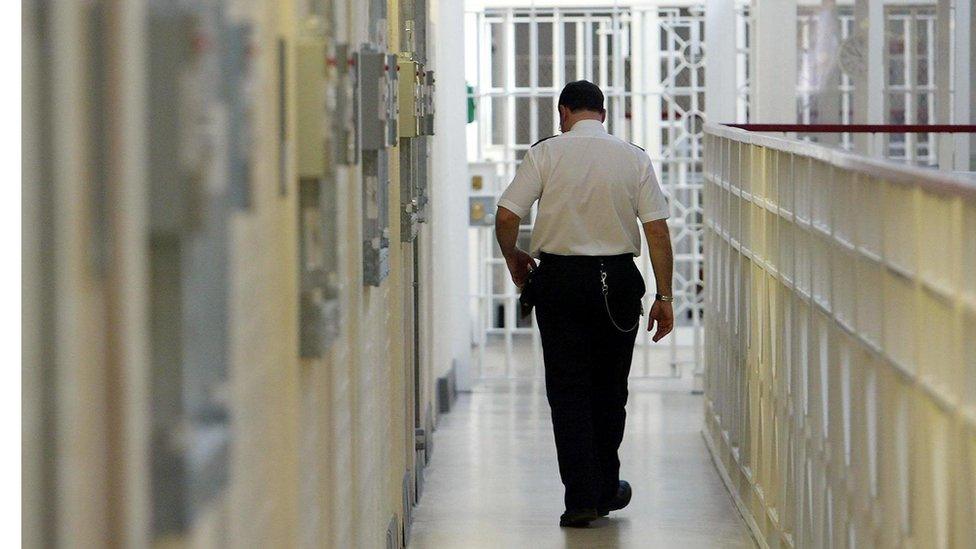Prison criticised for restraining ill murderer, 84

Colin Evans, then 44, is led to a police van, his head covered with a blanket, after appearing at Barking Magistrates Court in May 1984, charged with the murder of Marie Payne
- Published
A prison has been criticised for using restraints on an 84-year-old child killer who was taken to hospital shortly before his death.
Colin Evans, a category A prisoner at HMP Full Sutton, East Yorkshire, died of bronchopneumonia, heart and kidney disease on 26 January.
A prisons ombudsman report into his death found staff used restraints "disproportionately" during hospital transfers without due consideration for his advanced age and health conditions.
Evans was sentenced to life in prison in December 1984 for the murder of four-year-old Marie Payne, from Dagenham, Essex.
He was given a minimum term of 30 years, which was later reduced on appeal to 26 years and four months, and had been at Full Sutton since 2006.
'Reasonable care'
According to the ombudsman's report, external, the clinical care Evans received at Full Sutton "was of a reasonable standard" and equivalent to care in the community.
He had been suffering from long-term health conditions, including chronic kidney disease, chronic lymphoid leukaemia and heart disease.
By the summer of 2023, Evans was using a wheelchair to move around the prison.
On 1 November, he was taken to hospital complaining of abdominal pain. A risk assessment found he posed a high risk to the public, a low risk to medical staff and a low risk of escape.
A nurse said there were no medical objections to the use of restraints and a duty manager concluded that, based on his age and mobility, an escort cable should be used, with one end attached to Evans' wrist and the other to a prison officer.

Evans was serving a life sentence at HMP Full Sutton
Evans returned to hospital on 22 November, with officers using the same restraints.
On 28 December, a GP assessed Evans, who was suffering from shortness of breath and swelling to his legs. He was taken by ambulance to York District Hospital, again restrained by escort cable.
During a risk assessment, a GP recorded no medical objection to the use of restraints, while noting that Evans' condition restricted his ability to escape, but he did not have impaired mobility.
Evans remained restrained for two weeks. On 13 January, his health deteriorated and the restraint was removed. End-of-life care started on 24 January.
Risk factors
According to the report, prison staff told the ombudsman that the decision to use an escort cable, rather than double cuffs (two pairs of handcuffs), was proportionate based on Evans being a category A prisoner.
However, the ombudsman found that, given his symptoms and medical history, the "risk could have been effectively managed by the officers accompanying him without the use of restraints".
It "was not evident" that his medical condition was properly considered in the escort risk assessment, or that prison staff demonstrated that risk factors "outweighed his medical condition".
The report said it was "important that Full Sutton properly considers the prisoner’s age, health and mobility when determining the appropriate level of restraints".
The ombudsman had previously made recommendations to Full Sutton following a death in December 2023, when restraints were "unjustifiably used" on an older man in poor health.
These recommendations included training for staff on the legal position regarding restraints.
The ombudsman also raised concerns about how well healthcare staff understood the risk assessment process and noted that NHS England had been reviewing its policies around prisoner escort.
Listen to highlights from Hull and East Yorkshire on BBC Sounds, watch the latest episode of Look North or tell us about a story you think we should be covering here, external.
Related topics
- Published23 May 2024

- Published27 February 2023

- Published1 June 2023
